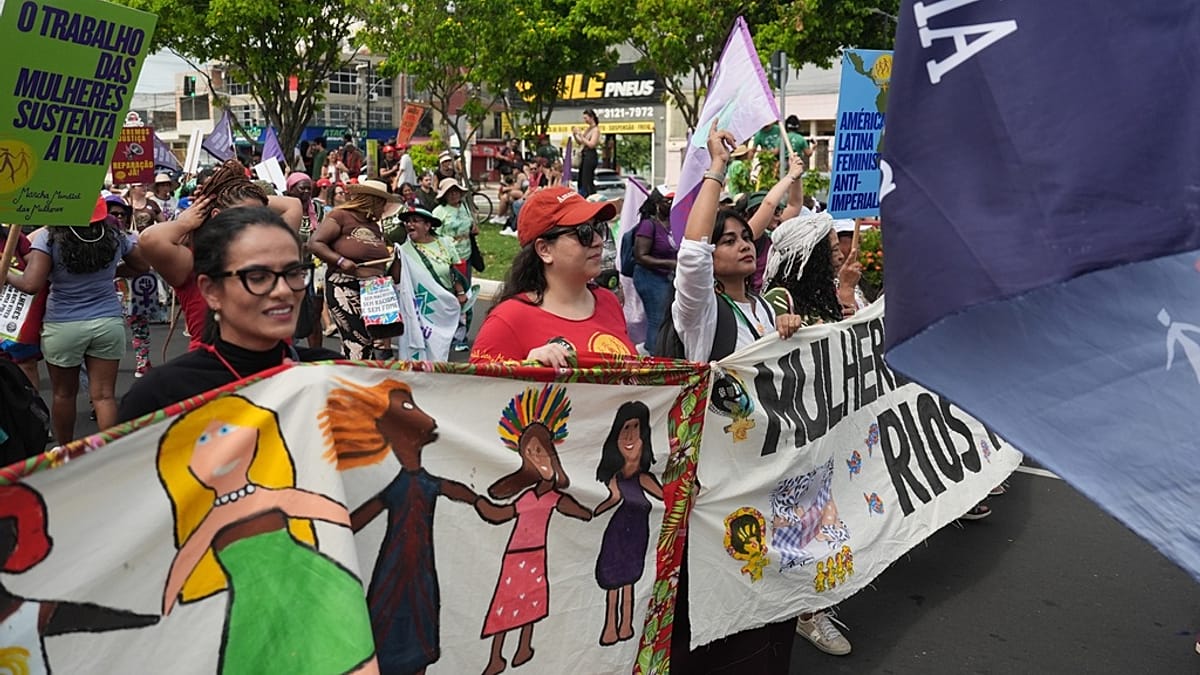Thousands of protesters took their message again to the gates of the COP30 United Nations climate conference talks in Belem, Brazil, blocking the venue of the climate talks in a peaceful standoff.
Activists, Brazilian youth organisations, and indigenous communities participated in the march to demand action during the crucial UN climate meeting.
Speaking about the effects of climate change in their home countries, activists with the Fridays for Future movement advocated for youth representation in the UN negotiations.
“For us, the youth who are inheritors of the planet, that is very frustrating,” said Rachelle Junsay, with Climate Action Philippines. “That drives us crazy and mad because this is the future that we are talking about.”
“It is about the survival of our species. And yet, the decision-makers sitting at the table today, those in the negotiation panels, and those who are in the blue zones in their air-conditioned rooms are talking about, you know, the people. And yet the actual victims, the actual communities, are not at the table and are not in the conversation.”
Protests at climate talks are first since 2021
It was the first time in three years that protesters had been allowed to demonstrate outside the UN climate talks.
The demonstrations, which have been disrupting the talks, come in a conference that organisers have promoted as empowering and celebrating native peoples.
Earlier this week, protesters twice disrupted the talks by surrounding the venue, including an incident on Tuesday where two security guards suffered minor injuries. Saturday’s march was scheduled to stop short of the venue, where a full day of sessions was planned.
Many of the protesters revelled in a freedom to demonstrate more openly in Belem than at recent climate talks held in Azerbaijan, the United Arab Emirates, and Egypt.
Youth leader Ana Heloisa Alves, 27, said it was the biggest climate march she has been part of. “This is incredible,” she said. “You can’t ignore all these people.”
Alves was at the march to fight for the Tapajos River, which the Brazilian government wants to develop commercially. “The river is for the people,” her group’s signs read.
Pablo Neri, coordinator in the Brazilian state of Pará for the Movimento dos Trabalhadores Rurais Sem Terra, an organization for rural workers, said organisers of the talks should involve more people to reflect a climate movement that is shifting toward popular participation.
The climate talks are scheduled to run through Friday, 21 November, but analysts and some participants have said they don’t expect any major new agreements to emerge from the talks, though many are hoping for progress on some past promises, including money to help poor countries adapt to climate change.
The United States, where President Donald Trump has ridiculed climate change as a scam and withdrawn from the landmark 2015 Paris Agreement that sought to limit Earth’s warming, is skipping the talks.

